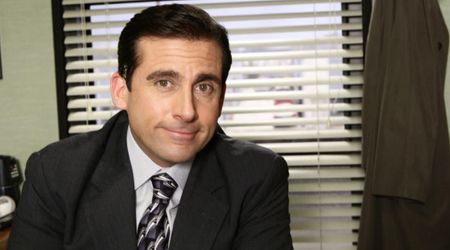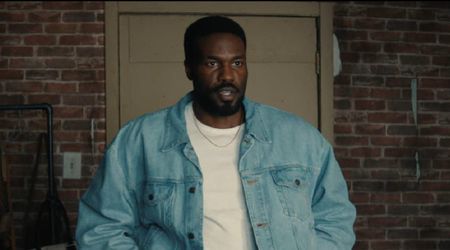How did Terry Pratchett die? ‘The Watch’ author wanted to meet Death on his own terms after Alzheimer's

BBC America's 'The Watch' will bring to life one of Terry Pratchett's most popular characters — Sam Vimes, Commander of Ankh-Morpork's City Watch. But even more popular than Commander Vimes among fans of Pratchett's Discworld series is Death. Skillfully combining the myths and tropes around the "Grim Reaper", Pratchett created a fictional figure that was terrifying to those who did bad things, gentle with those who lived life the best they could and was not opposed to participating in a Morris dance once in a while. Pratchett's Death was an anthropomorphic personification of humanity's collective desire to have a neutral, fair arbiter of a human being's final moment.
The author is possibly the best source for what living and dying meant to him. In a passage from 'Reaper Man', Pratchett wrote: "In the Ramtop village where they dance the real Morris dance, for example, they believe that no one is finally dead until the ripples they cause in the world die away — until the clock he wound up winds down, until the wine she made has finished its ferment, until the crop they planted is harvested. The span of someone’s life, they say, is only the core of their actual existence.”
But his equanimous view of death was challenged by his own battle with Alzheimer's — possibly the worst disease a creative mind can battle with. In a sarcastic remark about the debilitating disease that would eventually claim his life, he said: "I always dreamt that when I died I would be sat in a deckchair with a glass of brandy listening to Thomas Tallis on the iPod. But I had Alzheimer’s, so I forgot all about that."
It was in August 2007 that Pratchett revealed he had an atypical variant of Alzheimer's disease called posterior cortical atrophy. This rare form of the disease causes the areas at the back of the brain to shrink and shrivel. After the diagnosis, the author became increasingly invested in raising awareness about the disease. He would go on to donate $1,000,000 to the Alzheimer's Research Trust after finding out that funding for Alzheimer's research was hovering around 3% of money devoted to finding cancer cures.
In April 2008, Pratchett worked with the BBC to make a two-part documentary series about his illness, 'Terry Pratchett: Living With Alzheimer's', which won a BAFTA. By this time, the author was finding it increasingly difficult to read and write as his eyesight failed and he switched to dictating his books. It was in late 2014 that Pratchett realized he was not the same writer he used to be.
Rob Wilkins, Pratchett’s long-term assistant and collaborator, wrote about how the author pronounced his death as an author almost a year before his actual death. “We had a good day working on the biography and he said to me: ‘Rob, Terry Pratchett is dead.’ Completely out of the blue. I said: ‘Terry look at the words you have written today. It is fantastic.’ And he said: ‘No, no. Terry Pratchett is dead.’”
Wilkins said that towards the end of his life Pratchett became increasingly angered by his disease. “He could see how it was affecting him, how it was tripping him up and I knew we were up against it for time. We had to get the words down and with that white heat, with that white anger driving him to write seven whole novels through the haze of Alzheimer’s.”
Before this, Pratchett also discussed the possibility of assisted suicide in an article published in 2009. In his opinion, "it should be possible for someone stricken with a serious and ultimately fatal illness to choose to die peacefully with medical help, rather than suffer". He would go on to pen a lecture titled 'Shaking Hands with Death' for the 2010 BBC Richard Dimbleby Lecture, which was read by his actor friend Sir Tony Robinson and present a 2011 BBC television documentary, 'Terry Pratchett: Choosing to Die', about assisted suicide, which won the Best Documentary award at the Scottish BAFTAs.
However, despite his musings, the author died a natural death, unassisted, at age 66, eight years after his diagnosis, on March 12, 2015. The immediate cause of death was a chest infection and the worsening effects of dementia. "Everybody who reads his work would agree Death was one of his finest creations — Terry in some way has now shaken hands with one of his greatest-ever creations," said his friend Sir Tony Robinson, after his passing.
'The Watch' airs on January 3 at 8/7c on BBC America.










